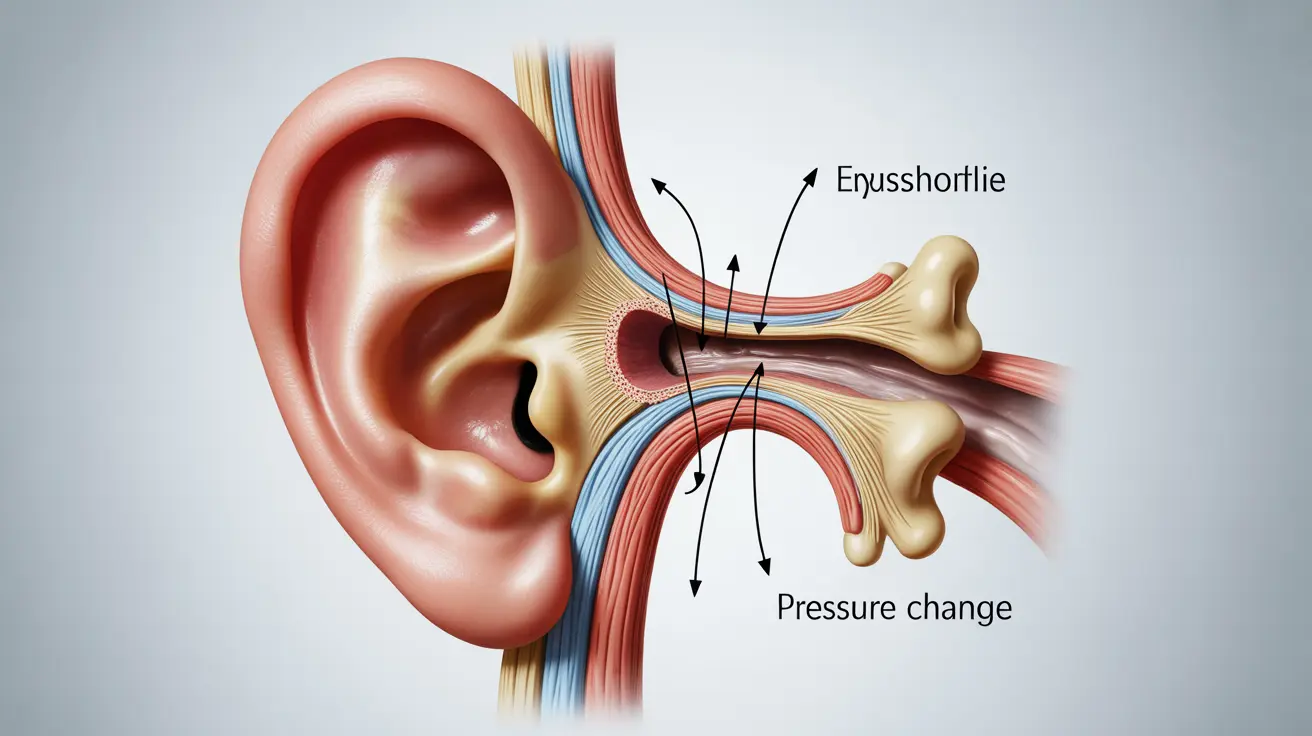If you've ever blown your nose and suddenly felt like your ear was clogged, you're experiencing a common but frustrating phenomenon. This sensation occurs due to the interconnected nature of your ear, nose, and throat passages, and while usually temporary, it can be concerning when accompanied by pressure, discomfort, or dizziness.
Understanding why this happens and knowing how to safely address it can help you manage these symptoms effectively and recognize when medical attention might be necessary.
The Connection Between Your Nose and Ears
Your ears, nose, and throat are connected through a complex network of passages, with the Eustachian tubes playing a crucial role. These tubes run from your middle ear to the back of your throat, helping to regulate air pressure and drain fluid from your ears.
When you blow your nose, the pressure changes in your nasal passages can affect these tubes, sometimes causing temporary blockage or pressure imbalances that result in that clogged sensation.
Common Causes of Ear Clogging After Nose Blowing
Pressure Changes
The most immediate cause of ear clogging after blowing your nose is the sudden change in pressure within your nasal and ear passages. This is similar to what you might experience during air travel or elevation changes.
Congestion and Inflammation
When you have a cold or allergies, the tissues in your nasal passages and Eustachian tubes can become inflamed and swollen, making them more susceptible to blocking after nose blowing.
Safe Relief Methods
Gentle Techniques
Several safe methods can help relieve ear pressure and clogging:
- Yawning or swallowing repeatedly
- Performing the Valsalva maneuver (gently blowing out while pinching your nose and keeping your mouth closed)
- Chewing gum
- Taking slow sips of water
Proper Nose-Blowing Technique
To minimize ear clogging when blowing your nose:
- Blow gently, one nostril at a time
- Avoid excessive force
- Keep your mouth slightly open while blowing
- Take breaks between blows
When to Seek Medical Attention
While ear clogging after blowing your nose is usually harmless, certain symptoms warrant medical evaluation:
- Persistent clogging lasting more than a few days
- Severe pain or pressure
- Significant dizziness or vertigo
- Hearing loss
- Fever or other signs of infection
Frequently Asked Questions
Why does my ear feel clogged after I blow my nose?
Your ear feels clogged because blowing your nose can create pressure changes in your Eustachian tubes, which connect your middle ear to your throat. This pressure change can temporarily block the tubes, causing a clogged sensation.
How can I safely relieve ear fullness or pressure caused by blowing my nose?
You can safely relieve ear pressure by yawning, swallowing, chewing gum, or performing the Valsalva maneuver. It's important to be gentle with these techniques and avoid excessive force.
What causes dizziness or muffled hearing when my ear feels clogged after nose blowing?
Dizziness and muffled hearing occur because the pressure imbalance in your middle ear affects your balance system and the movement of your eardrum. This can temporarily impact your hearing and equilibrium.
When should I see a doctor if my ear feels clogged after blowing my nose?
Consult a doctor if you experience persistent clogging lasting more than a few days, severe pain, significant dizziness, hearing loss, or signs of infection such as fever.
Are there treatments or home remedies to prevent ear clogging linked to Eustachian tube issues?
Yes, preventive measures include using proper nose-blowing technique, staying hydrated, using saline nasal sprays when congested, and avoiding forceful nose blowing. Over-the-counter decongestants may help during colds or allergies, but should be used as directed.




